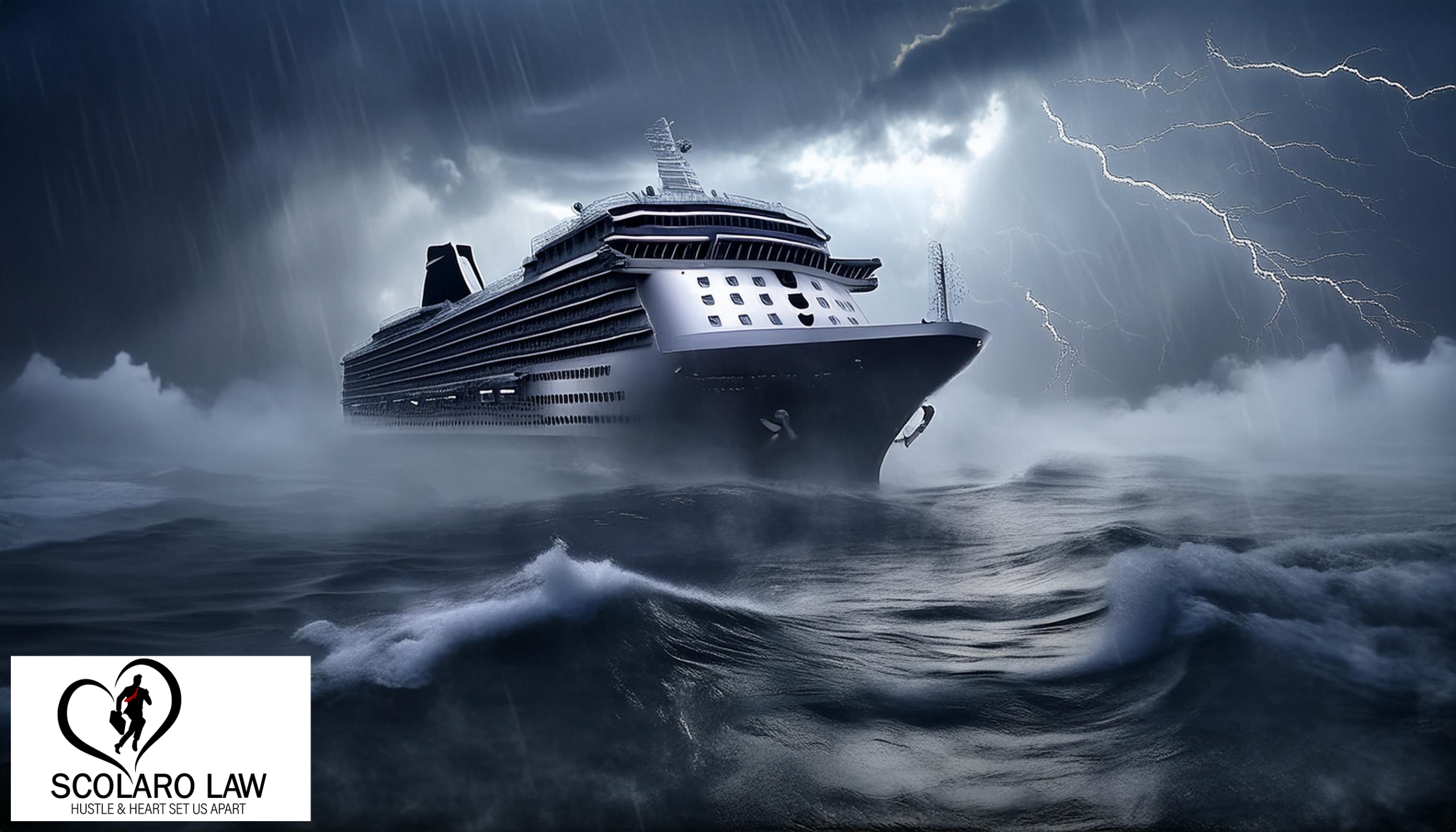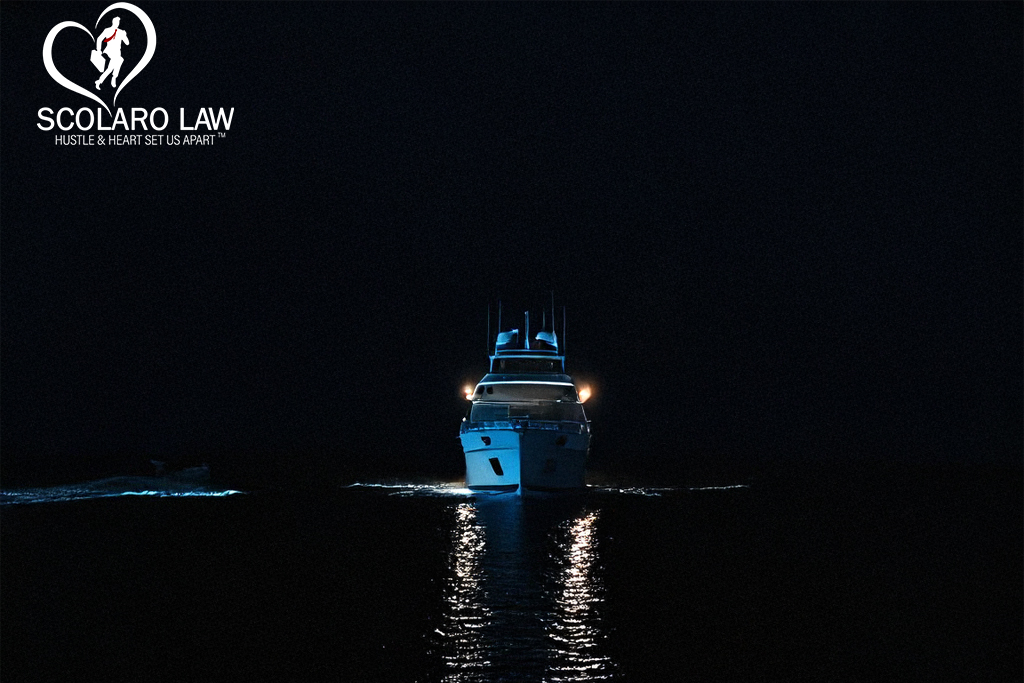
Get Started with a Free Consultation
If you were injured in an incident in Florida, contact us by filling out this form.
"*" indicates required fields
$5.5 Million Recovery for European Passenger in Medical Malpractice Case Against Cruise Line – Thomas Scolaro Busts the Athens Convention’s Cap on Damages
June 7, 2024
Thomas Scolaro of Scolaro Law successfully resolved a medical malpractice case for parents whose child suffered catastrophic injuries due to the misdiagnosis and delayed treatment by cruise ship doctors. Despite a passenger ticket contract stipulating the application of law from their home country in Europe, which adheres to the Athens Convention with a stringent $540,000 cap on damages, Tom Scolaro was able to secure a recovery for his clients that exceeded the cap by more than ten times.
The Most Horrific and Maddening Case of Medical Negligence on a Cruise Ship
In the early stages of a Caribbean cruise departing from the Port of Miami, concerned parents took their 9-month-old daughter to the ship’s infirmary. The child presented with classic signs of life-threatening meningococcal meningitis: pale complexion, lethargy, fever, sinus tachycardia, and dehydration. Lethargy in an infant is a significant neurological change, indicative of meningococcal infection, and not associated with gastroenteritis. However, the ship’s doctor misdiagnosed her with acute gastroenteritis, ignoring the marked lethargy and other red flags, and prescribed a suppository and a pain reliever. Once the pain reliever took effect, the family was discharged back to their stateroom under an isolation protocol for gastroenteritis.
Over the next 16 hours, the family returned to the infirmary four more times as their daughter’s alarming symptoms worsened: increasing lethargy, high fever, projectile vomiting, and a non-blanching rash on her arms and legs. Each time, the doctor discharged the baby back to the parents’ care. On the last visit, the parents refused to leave and demanded antibiotics, which the doctor reluctantly prescribed under mounting pressure from the worried parents.
The doctor eventually suspected a life-threatening infection, but it was 16 hours too late. Despite this suspicion, the staff refused to evacuate the family to a pediatric intensive care unit. The parents pleaded multiple times for a medivac, but were told it was impossible due to their location at sea. Instead, the medical staff arranged a shore-side referral to the hospital at the next port, never contacting the United States Coast Guard for a possible medivac or arranging a telemedicine consultation with a specialist.
Records show that the doctor asked the staff captain how much time could be saved by speeding up the ship and was told they could arrive approximately 45 minutes earlier. However, the doctor did not request the ship to speed up. When the ship arrived at the next port, no priority arrangements were made for the family’s disembarkation; they had to queue in line like everyone else.
As a result of the compounded negligence by the cruise ship’s doctors, our minor client suffered catastrophic injuries from an uncontrolled infection.
The Athens Convention Caps Injured Cruise Passengers’ Damages
The 1974 Athens Convention, and its successor the 2002 Protocol, operate to create a liability limitation for cruise corporations with regard to injury claims brought by its passengers. The Athens Convention’s liability limitation is applicable so long as the ship does not touch a U.S. port or when unsuspecting European passengers have it embedded into their passenger ticket contracts in conjunction with a choice of law clause for their home country. Those European passengers do not get the protection of U.S. Law and its prohibition of caps on damages.
Article 3 of the Convention provides that a cruise carrier shall be liable for its negligence, however, the financial responsibility of cruise lines is capped at $540,000 (400,000 Special Drawing Rights) per passenger.

Our clients were from a European country. Their ticket contract called for application of law from their home country which ratified the Athens Convention in 1980. In other words, the Athens Convention applied to them and their damages were specifically capped.
Even though a cruise ship may touch a U.S. port, cruise lines have nonetheless tried to backdoor a liability limitation by altering the passenger ticket contract of European passengers. Generally, passenger contracts call for any lawsuit to be filed in Florida and applying U.S. law. With regard to European passengers, however, the cruise lines had devilishly figured that since those countries were signatories to the Athens Convention, they could successfully backdoor a liability limitation if it just altered those select contracts to call for venue and choice of law in their home country instead of Florida.
For years passengers have argued against this deceitful practice claiming that this tactic was prohibited under 46 U.S.C. § 30509(a) because the cruise ship touched a U.S. port. Passengers’ lawyers had previously argued that the cruise lines were forbidden from having European passengers rights limited so long as the ship touches a U.S. port. Unfortunately, in 2012, the U.S. Court of Appeals for the Eleventh Circuit disagreed when it decided the Myhra case.
Estate of Myhra v. Royal Caribbean Cruises Ltd.
In Myhra, the plaintiff, a citizen and resident of the United Kingdom, fell ill while on a Royal Caribbean cruise and died sometime later. A lawsuit for medical negligence was filed in Miami on behalf of the estate seeking damages for his death. The cruise line moved to dismiss the action, arguing that the passenger ticket contract required the lawsuit to be brought in Myhra’s home country under the laws of England and Wales. Since the UK is a signatory to the Athens Convention, this meant its financial limitations applied to Myhra’s estate. The trial court dismissed the lawsuit.
On appeal, the Eleventh Circuit agreed with the cruise line and held that the forum-selection clause included in the ticket contract was valid, even if the chosen forum might apply substantive law that would impose a limitation on liability, such as the Athens Convention, regardless of whether the ship touched a U.S. port. Specifically, Myhra examined 46 U.S. Code § 30509(a), which prohibits a ship owner transporting passengers and touching a U.S. port from including a contract provision that limits the owner’s liability for personal injury or death caused by the negligence or fault of the owner. However, the Eleventh Circuit ruled that this provision was intended to forbid the unilateral imposition of liability limitations by the ship owner without judicial recourse. Therefore, the forum-selection clause in Myhra’s ticket contract did not contravene the statutory policy expressed in 46 U.S. Code § 30509(a). The court essentially held that since the country itself had agreed to these limitations, private contractors were within their rights to include such limitations, provided they were not unilaterally imposed by the ship owner.
Myhra’s Unacceptable Consequences for Cruise Passengers
Myhra has created and resulted in a facially disparate treatment of passengers based solely on their citizenship, openly limiting passenger’s financial recovery just because they hold a different passport.
For example, if an American baby, a Canadian baby, a Brazilian baby (none from an Athens Convention country), and a British baby were all on the same cruise out of Miami and all sustained catastrophic, life-altering injuries because of the cruise line’s negligence, the cruise line would require the American, Canadian, and Brazilian babies to file suit in Florida and would be liable to those babies for every penny of the substantial damages they caused. The British baby, however, would have to sue in the United Kingdom, which would apply the Athens Convention and limit her damages to a maximum of $540,000. Tough luck kid!
If a passenger from a non-Athens Convention country, on the same ship as the British baby, slipped, fell, and sustained a minor orthopedic injury, the cruise line would owe that passenger greater liability than it does to the British baby. This passenger could potentially recover an unlimited amount in damages, far exceeding the compensation available to the British baby.

Experienced Cruise Injury Attorney Thomas Scolaro “Busts” The Cap
Within six months of representing the family, despite the unfavorable precedent set by Myhra, Tom Scolaro secured more than ten times the damage cap for his minor client. Through a disciplined and innovative legal approach never tried before, Scolaro developed a strategy that ensured full financial compensation despite the legal obstacles.
This latest result and achievement marks the beginning of a new era in cruise ship litigation for injured passengers who are citizens of Athens Convention signatory countries.
“We knew it would be hard if not impossible to remedy this wrong. Regardless, when injustice is the alternative, we will stop at nothing for our clients. Everyone should have an equal opportunity for justice and caps on damages are the antithesis of full justice. Sometimes you just cannot take no for an answer. With a $5.5 million settlement, our client now has the financial resources required to navigate her future.”
Attorney Thomas Scolaro
Contact us
In light of our recent success and the groundbreaking strategies we have developed, we are committed to fighting for the rights of injured passengers, including those from Athens Convention signatory countries. If you or a loved one has been hurt on a cruise ship, reach out to us. Our expertise in navigating complex maritime laws and our innovative approach to overcoming legal obstacles have made a significant difference in securing our clients’ future. Contact us today to discuss your potential claim. Whether you are a victim seeking justice or an attorney looking to refer a case, Scolaro Law is here to provide the skilled and dedicated representation required to obtain the best result.

